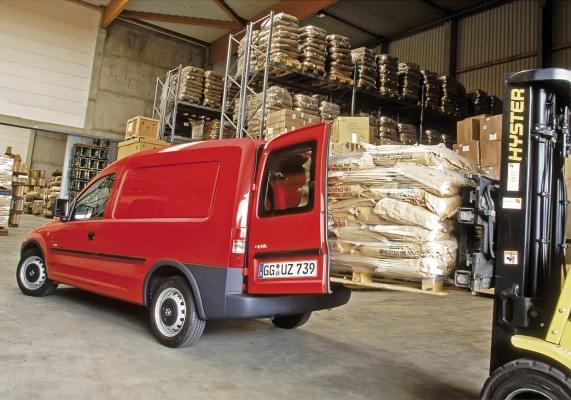Four wheels in large numbers
Péter Erdélyi, the president of the Hungarian Vehicle Importers Association told Trade magazin that already one car can qualify as a fleet. Company cars are better be grouped based on what they are used for (e.g. there are executive cars and work cars). Mr Erdélyi doesn’t forecast a revitalisation of the fleet market in 2013. Data from Datahouse Kft. reveal that from the 47,449 new cars sold in 2012 74.2 percent was purchased by companies. Last year 10,900 new small utility vehicles were sold and 10,365 ended up at business ventures. Arval Magyarország Kft.’s managing director Kálmán Tekse informed us that more and more firms buy vehicles with the help of companies specialising in fleet financing. In 2012 every fifth new car was sold in a fleet financing scheme in Hungary and every fourth company car was purchased this way. Among newly signed contracts the proportion of operative leasing neared 90 percent – considering the full portfolio it went above that threshold. Mr Tekse’s view is that the reason behind this trend is the VAT changes that entered into force on 1 January 2012. Tamás Varga, customer relations director of Citroen Hungária Kft. is of the opinion that utility vehicle sales dropped 5 percent last year mainly because of the unstable economic environment – companies were afraid to make investments. From Citroen’s utility vehicle models Jumper and Berlingo are the most popular. He told that air conditioning and cruise control are the extra features buyers most frequently ask for. Zsombor Varga, PR director of Ford Central and Eastern Europe Sales Kft. reported to us that despite the stagnation of the market Ford managed to expand by 4.2 percentage points in 2012, and their current market share is 13.6 percent in the utility vehicle segment, which makes them market leaders (sales were up 38 percent). In his view this success was in a large part the result of Transit Custom (the only vehicle in the segment with a 5-star Euro NCAP rating) winning the ‘International Van of the Year’ trophy and Ranger taking home the ‘International Pick-Up of the Year’ award. This year the new Fiesta Van, Transit and Transit Connect will make the process complete, while next year will usher in the Transit Courier. Several studies (e.g. one by Dekra-Expert) proved that the operating costs of Ford utility vehicles are very low and the company also guarantees excellent warranty conditions. In 2012 the new Ranger’s success was the most spectacular from all Ford models: in the pick-up segment it generated a 240-percent sales growth – in a period when the segment only grew by 16.98 percent. As for Ford Transit, in 2011 44 percent of sales were made up of models purchased with basic features, but in 2012 this ratio was down at 32 percent and the rest was ordered with extras. The same trend can be observed with Ranger: 55 percent was sold with basic features in 2011 but this ratio dropped to 38 percent in 2012. Ford now offers more utility vehicle models with Econetic Technology for lower consumption, reduced CO2 emission and favourable operating costs. According to Opel Hungary fleet director László Tüttő, in the first half of 2012 a large number of new cars were registered, but the 15-18 percent of growth in this period later died down and by the end of the year the truck market contracted 5 percent. The company’s experience is that the importing of used trucks increased. Opel Hungary’s view is that 4×4 pick-ups are losing popularity and now the most sought-after models are 13-17m³ vans with ABS, central locking, air conditioning, electric rear view mirror and an audio system. Most of the time cars are paid for in cash. Mr Tüttő is of the opinion that price is the number one priority on the Hungarian market and the euro 5 engine is only considered a price-increasing factor by customers.
Related news
Related news
The keys to corporate growth in 2026: AI, acquisitions and rapid transformation
🎧 Hallgasd a cikket: Lejátszás Szünet Folytatás Leállítás Nyelv: Auto…
Read more >





